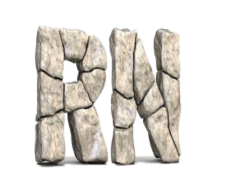The Roman numeral “MXCIV” represents the number 1094.
Here’s the breakdown:
- M represents 1000.
- XC represents 90 (ten less than a hundred).
- IV represents 4 (four).
When you add these Roman numerals together, you get 1000 + 90 + 4, which equals 1094.
Decimal to Roman Numeral Converter
Roman Numeral:
The year 1094 was part of the High Middle Ages and was marked by various historical and cultural developments.
Here are some fun facts and notable occurrences related to this period:
- Crusades: The First Crusade, which had begun in 1096, was an important event of the late 11th century. In 1094, preparations and movements leading up to the First Crusade were underway.
- Almoravid Empire: The Almoravid Empire, a Muslim dynasty that ruled parts of North Africa and Spain, was at its height during this time. It played a significant role in the history of the region.
- Election of Pope Urban II: Pope Urban II, who would become a key figure in launching the First Crusade, was elected as Pope in 1088. His papacy had a profound impact on the Christian world.
- Medieval Universities: The establishment of universities in Europe began to take shape during the 11th and 12th centuries. These institutions would later become centers of learning and scholarship.
- Medieval Art and Architecture: The Romanesque style of architecture was prominent during this period, with the construction of many Romanesque churches and cathedrals throughout Europe.
- Medieval Literature: The epic poem “The Song of Roland” is believed to have been composed around this time. It is one of the most famous literary works of the High Middle Ages.
- Norman Conquest of Sicily: In 1091, the Norman conquest of Sicily was completed when the Norman ruler Roger I captured the city of Palermo, solidifying Norman control over the island.
- Medieval Feudalism: Feudalism was the dominant social and economic system in medieval Europe, characterized by the relationships between lords and vassals. It played a significant role in shaping medieval society.
- Mathematics and Science: Scholars in the Islamic world made significant contributions to mathematics, astronomy, and medicine during this period, preserving and expanding upon the knowledge of ancient civilizations.
- Medieval Trade Routes: Trade routes, such as the Silk Road and trans-Saharan trade routes, facilitated the exchange of goods, culture, and ideas across different regions.
While 1094 itself may not be famous for specific events, it was part of a broader historical context filled with cultural, political, and intellectual developments in Europe, the Middle East, and North Africa. These developments played a crucial role in shaping the medieval world and laying the foundation for subsequent historical periods.
